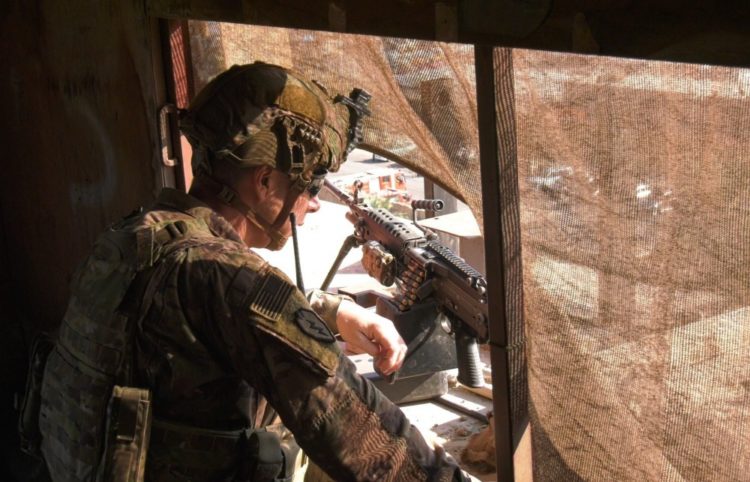In an emergency session following the death of Iranian Major General Qassem Soleimani, Iraq’s parliament voted to expel all American troops from their country.
While the vote is non-binding, Prime Minister Adil Abdul-Mahdi has voiced his support for the move. Expressing his thanks for American aid in the fight against the Islamic State, Abdul-Mahdi said it was now time for U.S. troops to leave Iraq permanently.
There are roughly 5,200 American soldiers, along with some allied troops, currently stationed in the country as part of the anti-ISIS campaign.
The parliamentary session saw many Sunni and Kurdish members of parliament boycotting it; Shi’ite parties nevertheless had enough seats to carry the vote.
The resolution now needs to be approved by the Iraqi government, which could take some time. Abdul-Mahdi resigned in November following mass protests and is currently serving in a caretaking capacity. The implementation of the vote will most likely be left to his successor, should he wish to enact it.
With popular ire at record heights and the lack of an existential threat like the Islamic State, it’ll be difficult for a future prime minister to oppose such a resolution.
An expulsion of U.S. forces would move them out of harm’s way while simultaneously easing the burden on Iraqi security forces that are responsible for ensuring their safety.
President Trump has threatened Iraq with severe sanctions should it carry out the expulsion of American forces. “We will charge them sanctions like they’ve never seen before, ever. It’ll make Iranian sanctions look somewhat tame.” Additionally, he has demanded that the Iraqis pay the U.S. for its airbase.
The U.S. and its allies have already suspended operations related to supporting Iraq’s anti-ISIS operations, which include training Iraqi forces. The Pentagon cited recent attacks on American and Iraqi bases over the past couple of months as the reason for the suspension.
Senator Marco Rubio responded to the news coming out of Iraq by tweeting out “Maybe it’s time for a fully independent Kurdistan in what is currently Northern Iraq?” Statements like these, while perhaps appreciated by a select few secessionists, will most likely only strengthen Iraqi resolve and might contribute to greater instability in the country.
Maybe it’s time for a fully independent #Kurdistan in what is currently Northern #Iraq? https://t.co/3SExH5WId4
— Marco Rubio (@marcorubio) January 5, 2020
Several countries, including the United States, have issued travel advisory warnings to their citizens urging them not to visit Iraq due to ongoing violence.
Thousands of Iraqis and hundreds of thousands of Iranians have taken to the streets to mourn the death of Soleimani and express their outrage over U.S. actions.
Friction between the United States on the one hand and Iraq and Iran on the other offers surviving remnants of ISIS additional breathing space. All three countries were involved in fighting the Islamic State.
With the U.S. also facing uncertainty over the future of its bases in Turkey, Washington is set to become increasingly dependent on the Gulf states. The Trump administration has already increased troop levels in the region.
Now that Iraq is set on its path and with the United States already conducting drone strikes in violation of Iraqi sovereignty, it is likely that future airstrikes will also be done in contravention of Baghdad’s wishes. This will mirror what is currently taking place in Syria.










COMMENTS